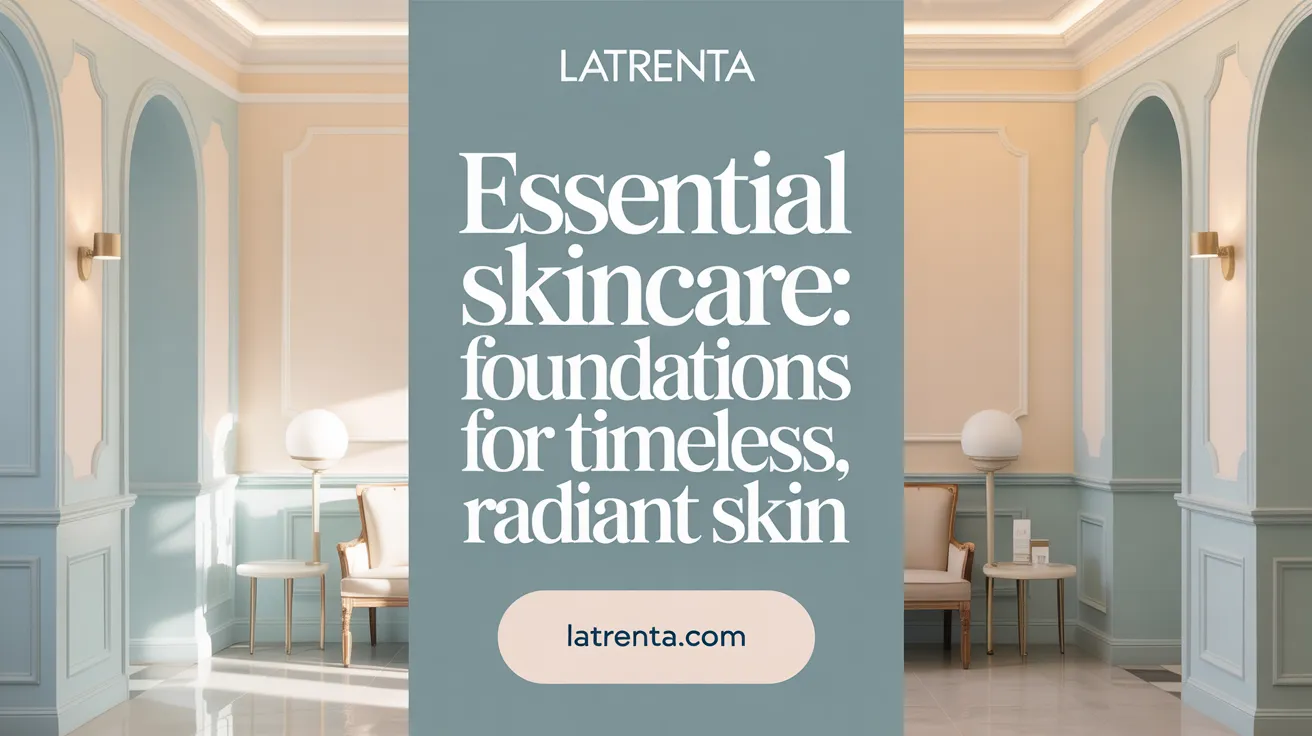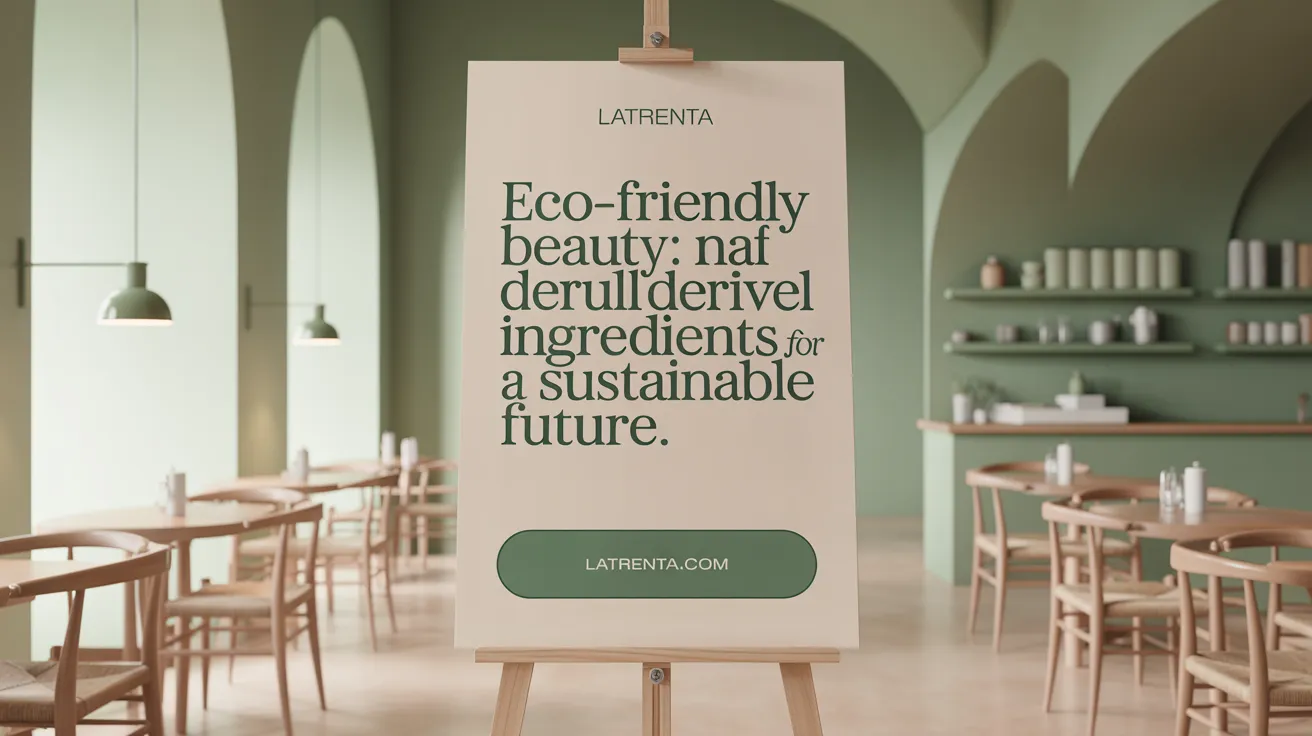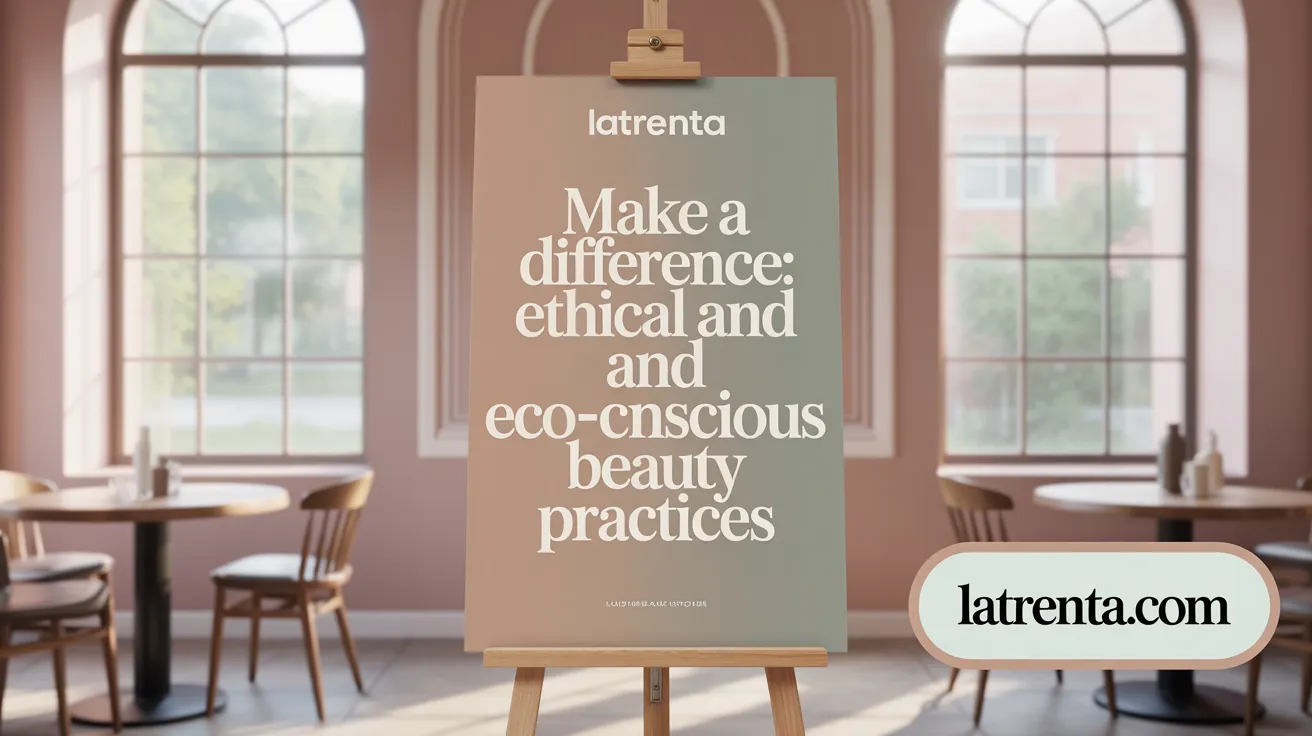The New Paradigm in Beauty Care
In an era where beauty goes beyond surface-level aesthetics, the focus is shifting to sustaining long-term beauty through smart, holistic choices. This approach melds advanced scientific insights with natural, ethical practices to emphasize health, vitality, and ethical responsibility. From personalized skincare regimens and preventative aging to sustainable cosmetics and mindful product selection, today’s beauty seekers are empowered to maintain their natural allure with wisdom and care.
The Science of Longevity in Beauty: Preventive and Personalized Approaches
How does longevity science influence modern beauty care?
Longevity science is reshaping beauty care by focusing on sustaining skin vitality through preventive and health-centered methods. Instead of merely combating visible signs of aging, it promotes skin health via cellular regeneration. This innovative approach harnesses advances in regenerative biology, stem cell therapy, and gene editing. Ingredients like peptides, NAD+, and exosomes support skin cell repair, slow aging markers, and enhance overall skin function, keeping skin looking youthful and radiant.
What are the benefits of personalized and non-invasive 'tweakments' over surgical options?
Modern beauty trends favor personalized non-invasive treatments, or "tweakments", which provide subtle, natural enhancements without the risks of surgery or extensive downtime. These approaches tailor care based on individual skin needs, supporting collagen production and skin regeneration safely. Examples include FDA-cleared microneedling systems and medical-grade serums that invigorate skin health gently while achieving rejuvenation.
Why prioritize preventative aging and holistic skin vitality?
Preventative aging emphasizes maintaining skin health before signs of damage appear, focusing on promoting collagen for skin, preventing oxidative stress, and maintaining gut health—important for skin wellness. Combining high-quality treatments with supplements and mindful skincare fosters a holistic vitality, ensuring skin remains resilient, fresh, and naturally beautiful over time.
This shift to science-driven, personalized, and minimally invasive beauty not only meets consumers' desire for healthier-looking skin tips but also underscores the importance of safety and efficacy in beauty products and trust through regulated products and expert care.
Core Skincare Essentials for Healthy, Youthful Skin

What are the fundamental skincare practices recommended for maintaining skin health?
Maintaining healthy, youthful skin relies on simple yet effective daily routines and lifestyle choices. The cornerstone is daily use of a broad-spectrum sunscreen with SPF 30 or higher to protect against harmful UV rays and prevent premature aging and skin cancer. It's best to apply sunscreen each morning, and reapply as needed throughout the day.
Gentle cleansing twice daily is essential. Use a mild cleanser suited for your skin type, avoiding harsh scrubbing to prevent irritation. Cleansing removes dirt, oils, and pollutants while preserving the skin’s natural barrier, as recommended by Mayo Clinic skincare advice.
Moisturizing regularly helps maintain hydration and supports the skin's protective function. Choose a moisturizer according to your skin’s needs—lighter formulations for oily skin and richer ones for dry skin, following guidance from trusted skincare brands.
Exfoliation, done once or twice weekly, promotes healthy skin renewal by removing dead skin cells. Chemical exfoliants like alpha or beta hydroxy acids can effectively smooth texture and boost radiance without damaging the skin, as outlined in skin care routine order.
Supporting skin health extends beyond topical care. A balanced diet rich in fruits, vegetables, whole grains, and lean proteins combined with adequate hydration nurtures skin from within. These nutrients support collagen production and repair, contributing to preventative aging and skin health.
Managing stress through techniques such as exercise, relaxation, and sufficient sleep improves skin appearance by reducing flare-ups and accelerating repair, supported by stress management and skin health.
Lastly, smoking cessation is critical as smoking accelerates skin aging, wrinkles, and dullness by damaging collagen and blood flow, detailed in smoking and skin aging.
Together, these practices create a holistic foundation for vibrant, healthier skin that ages gracefully through holistic beauty approaches.
Harnessing Sustainable and Natural Ingredients in Beauty Products

How is the beauty industry integrating sustainability and natural ingredients?
The beauty industry is increasingly turning to natural cosmetics ingredients to meet growing consumer demand for eco-friendly and effective products. Plant-based oils and microbial-sourced squalane have taken the lead as natural emollients, offering both sustainability and high performance in skincare formulations. Additionally, bio-catalytic processes are being used to create innovative ingredients that support both skin health and environmental goals.
An exciting development involves Natural Deep Eutectic Solvents (NaDES), which enhance the solubility, stability, and bioavailability of natural compounds in cosmetics. This technology supports the industry's shift toward formulations harnessing potent, naturally derived actives without relying on synthetic chemicals.
Sustainable sourcing is at the core of these changes. Certifications such as USDA Organic and the Roundtable on Sustainable Palm Oil (RSPO) guide companies in obtaining raw materials responsibly. Leaders in the market emphasize transparency and traceability to assure consumers of ethical ingredient origins.
The beauty sector also faces ethical challenges concerning ingredients like mica, palm oil, and microbeads, which can raise environmental and social issues. To address these concerns, companies are moving toward biodegradable packaging solutions and prioritizing resource-conscious formulations that reduce waste and pollution.
Through these concerted efforts—blending natural, rigorously sourced ingredients with responsible production and packaging—the beauty industry advances a more sustainable, ethical future that aligns with both consumer trends in beauty supplements and holistic treatments and environmental stewardship.
Smart Ingredient Choices: Minimizing Harm and Enhancing Safety
What should consumers consider regarding ingredient safety, especially for younger individuals?
When choosing personal care products, especially for tweens and teens, it's crucial to be aware of ingredients that may disrupt hormone development. Harmful chemicals such as synthetic fragrances containing phthalates, chemical sunscreens with oxybenzone, homosalate, or avobenzone, and aluminum compounds used in antiperspirants have been linked to early puberty and increased health risks.
To minimize endocrine disruption, mineral-based sunscreens featuring non-nano zinc oxide or titanium dioxide are safer alternatives. These provide broad-spectrum protection without exposing young skin to potentially harmful chemicals.
Opting for skincare products with fewer and simpler ingredients—ideally five or fewer—can significantly reduce systemic chemical exposure. Studies show that switching to natural and ingredient-conscious products quickly lowers the body's levels of concerning substances.
Furthermore, educating children and teens about ingredient safety empowers them to make informed beauty choices that support lifelong skin health. Promoting awareness encourages thoughtful selection of products that prioritize safety and natural formulations, fostering healthier habits from an early age.
Optimizing Daily Skincare Routines for Maximum Efficacy

How should one structure a skincare routine for the best results?
A skincare routine should be thoughtfully ordered from the lightest to the heaviest products. This sequencing ensures maximum absorption and effectiveness. Typically, the morning routine starts with cleansing using a gentle, nonmedicated cleanser. Next, antioxidant serums containing vitamins C and E protect the skin from environmental damage and support texture improvement. Following this, a moisturizer suited for the skin type is applied. The final and crucial step is broad-spectrum sunscreen with SPF 30 or higher to shield against UV rays and prevent premature aging.
What is the ideal product layering approach?
Light products penetrate more easily and should be applied first. For example, water-based cleansers go before oils or creams. Toners and serums come before moisturizers and face oils. Spot treatments target specific concerns and are placed before moisturizers but after serums. At night, a common layering method involves double cleansing, applying antioxidants or retinoids, moisturizing, and optionally using a sleep mask to lock in hydration.
How do morning and evening skincare routines differ?
Morning regimens focus on protection and hydration: cleansing, antioxidants, moisturizing, and sun protection. Evening routines emphasize repair and renewal. This often includes double cleansing to remove makeup and impurities, followed by exfoliating acids or retinoids to promote skin cell turnover, before moisturizing and applying heavier creams or oils (Skin care tips for healthy skin).
Why is patch testing important?
Introducing new products can risk irritation or allergic reactions. Patch testing a small skin area before full use helps identify sensitivities early, ensuring safety and efficacy.
How can routines be tailored to different skin types?
Understanding skin type (dry, oily, combination, sensitive) guides product choices. For oily or acne-prone skin, lighter, oil-free moisturizers and gentle cleansers reduce breakouts. Dry skin benefits from richer creams and hydrating serums. Sensitive skin requires mild, fragrance-free products and gentle application (Expert Skin Care Tips).
What role do serums and targeted treatments play?
Serums containing antioxidants and vitamins form the defense against damage, while targeted treatments like retinoids and acids improve texture, reduce wrinkles, and address pigmentation. These potent products are layered early in routines to enhance absorption and impact (Skin care routine order).
By following these structured steps and customizing products, individuals can develop effective skincare routines that maintain skin health, address concerns, and optimize beauty results (Healthier-looking skin tips).
Integrating Holistic Wellness for Sustainable Natural Beauty
What role do lifestyle factors play in sustaining natural beauty?
Lifestyle choices significantly influence skin health and the maintenance of natural beauty. Key habits include hydration, a balanced diet, adequate sleep, exercise, stress management, and broader self-care practices. For more on tips to maintain natural beauty, visit this resource.
Hydration
Keeping the skin well-hydrated is vital for maintaining a fresh, glowing complexion. Drinking ample water and using moisturizers help preserve skin’s moisture barrier, preventing dryness and enhancing texture. Discover skin care tips for healthy skin for guidance.
Balanced Diet
Consuming a diet rich in fruits, vegetables, whole grains, and lean proteins delivers essential vitamins and antioxidants. These nutrients support skin regeneration, protect against environmental damage, and promote natural radiance. Learn more about a healthy diet for skin.
Adequate Sleep
Quality sleep allows the body and skin cells to repair and regenerate, reducing signs of fatigue and aging. Sleep deprivation can worsen skin conditions and diminish overall skin vitality. See benefits of adequate sleep for skin health.
Exercise
Regular physical activity improves blood circulation, which nourishes skin cells and helps flush out toxins. Exercise also aids stress reduction and supports a healthy body weight, both beneficial for skin appearance. Find out more about exercise and skin health.
Stress Management
Chronic stress triggers skin flare-ups such as acne, eczema, or psoriasis. Incorporating relaxation techniques like meditation, yoga, or breathing exercises helps minimize stress's adverse effects on skin. Read about the importance of managing stress for skin health.
Self-Care Practices
Holistic self-care encompasses gentle skin cleansing routines, sun protection, and avoiding harmful habits like smoking. Together, these practices foster an environment where skin health and natural beauty can thrive. Check out useful tips on gentle skin care practices and sun protection.
By embracing these lifestyle factors, individuals can enhance their skin’s health and sustain natural beauty with an approach that supports overall well-being and longevity in beauty and holistic approaches.
The Ethical and Environmental Impact of Beauty Choices

How do sustainable beauty choices reduce environmental harm?
Sustainable beauty choices play a crucial role in minimizing environmental damage and promoting ethical practices. One of the most significant actions is reducing plastic waste. For example, using reusable makeup remover pads made from organic cotton, bamboo, or microfiber substitutes for disposable cotton pads, which lowers landfill contributions. Choosing multi-use products, such as combined lip and cheek tints, decreases packaging waste and streamlines routines.
Sustainable packaging is another vital aspect. Beauty brands are increasingly adopting recyclable, reusable containers and exploring circular lifecycle plans, helping reduce waste and encourage recycling. Consumers can support this by properly cleaning and recycling jars and containers, especially glass and some plastics.
Water conservation is an emerging priority in sustainable beauty routines. Simple habits like turning off the tap while rinsing the face cut down on water usage. Additionally, waterless beauty products are gaining popularity as eco-friendly alternatives that minimize water consumption during formulation and daily use.
Ethical sourcing underpins responsible beauty production. Certifications such as the Roundtable on Sustainable Palm Oil (RSPO) promote sustainable palm oil cultivation, preventing deforestation and supporting community livelihoods. Brands committed to these standards help ensure the safe and fair sourcing of ingredients, reducing environmental harm and protecting farmworker health.
Together, these practices contribute to a circular economy in beauty, reducing pollution, conserving resources, and promoting well-being across ecological and human systems.
Making Informed Choices for Timeless Beauty
Sustaining long-term beauty demands more than sporadic treatments; it requires an informed, holistic approach centered on health, sustainability, and safety. By embracing longevity science, adopting personalized skincare routines, selecting natural and ethically sourced products, and integrating wellness practices, individuals can preserve their natural beauty gracefully and responsibly. The marriage of science and mindful choices paves the way for radiant skin that reflects vitality and conscientious living across a lifetime.
